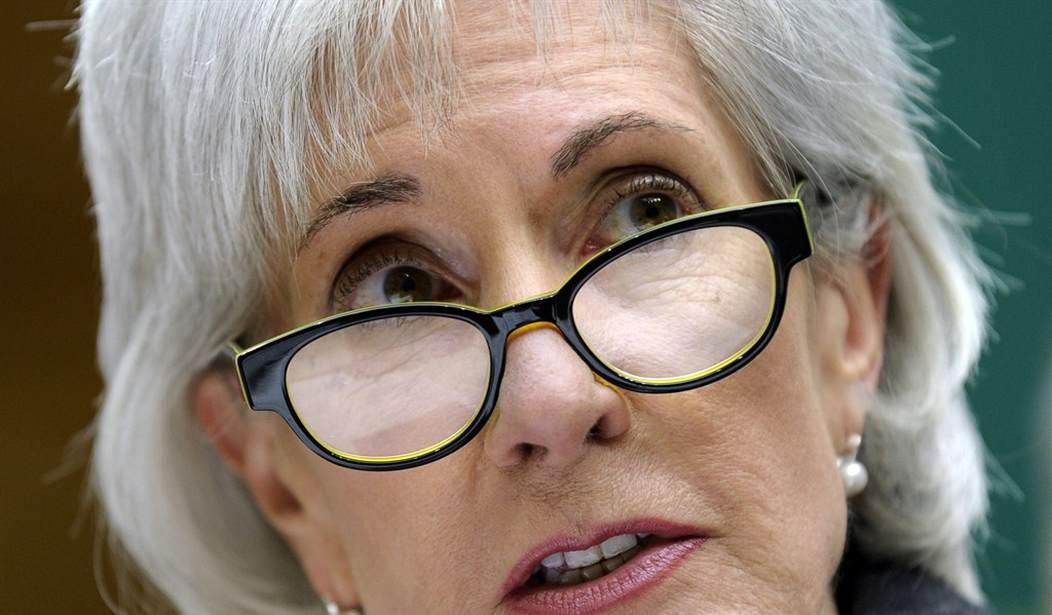Regular readers will recall the story of Julie Boonstra, a single mother of two who has been fighting Leukemia. After her existing health insurance plan was cancelled under Obamacare, Boonstra decided to take her story public in a television ad critical of Michigan Democrats' candidate in the upcoming US Senate election. Rep. Gary Peters' lawyers urged television stations to censor the ad, citing a Washington Post fact-check that slapped it with "two Pinocchios." Senate Majority Leader Harry Reid specifically called Boonstra out in the most infamous of of his many floor speeches hammering the conservative Koch brothers (Reid is fond of billionaire donors, just don't conservative ones). We responded to these attacks on Boonstra's credibility, explaining that her story checked out, and that she had every right to air her grievances against a law that had betrayed several key promises on which she'd been counting:
Though Boonstra's premiums have dropped under her new plan, she views its new and unpredictable out-of-pocket costs as a financial burden that she is unable to bear. One MSM fact-checker determined that those cross-currents might even out over time -- a hypothetical outcome that's a far cry from Democrats' promise of substantially lower rates. Plus, Boonstra was denied the ability to keep a plan with which she was fully satisfied, a glaring betrayal that must be particularly frightening for a cancer patient.
She never claimed that her new premiums were higher (as they are, and will continue to be, for millions of other Americans); she cited out-of-pocket costs as the source of her newfound affordability hardship. Over the weekend, Kevin highlighted a new study that goes straight to the heart of Boonstra's complaint:
Avalere Health, a market research and consulting firm, estimates some consumers will pay half the cost of their specialty drugs under health overhaul-related plans, while customers in the private market typically pay no more than a third. Patient advocates worry that insurers may be trying to discourage chronically ill patients from enrolling by putting high cost drugs onto specialty tiers. Brian Rosen, senior vice president for public policy for The Leukemia & Lymphoma Society, said the group studied premiums and benefits for patients with blood cancer in seven states, including Florida, California, Texas and New York. They found 50 percent co-insurance rates for specialty drugs on several plans in Florida and Texas, while the highest co-insurance rates on California plans were 30 percent and in New York, co-pays were typically $70.
Under the law, insurers can't charge an individual more than $6,350 in out-of pocket costs a year and no more than $12,700 for a family policy. But patients advocates warn those with serious illnesses could pay their entire out-of-pocket cap before their insurance kicks in any money. "The challenge is for the sickest patients, the ones that need access to these specialty drugs, the costs are going to come in most cases from that out of pocket cap ... they are likely to hit that $6,350 ceiling and in some cases quickly," said Rosen.
Recommended
Obamacare's cost caps have been delayed by a year, but even after the kick in, people like Julie Boonstra will have to grapple with unpredictable -- and potentially front-loaded -- costs. The share of prescription drug expenses they'll have to shoulder will increase, independent of their premiums. Meanwhile, one of Obamacare's chief architects is making an interesting prediction in a new book:
Ezekiel J. Emanuel, who helped devise the Affordable Care Act, has a vision for how it will eventually work. Democrats hope it will not materialize anytime soon. Mr. Emanuel expects the law to produce an unadvertised but fundamental shift in where most working Americans get their health insurance — specifically, a sharp drop in the number of employers who offer coverage to their workers. That scale of change would dwarf what took place last fall, when a political firestorm erupted over President Obama’s “if you like your plan you can keep it” pledge.
In fairness, many conservatives have advocated healthcare reforms that would emphasize portability, and would seek to sever what some argue is an antiquated link between a consumer's coverage and her employer. But that's not how Democrats sold Obamacare, as evidenced by the oft-repeated "keep your plan" promise. Ezekiel is now admitting what critics of the law have been predicting for some time: Last fall's rash of cancellations will look like child's play when all is said and done. White House officials privately knew this would be the case from the outset, and Senate Democrats voted in lockstep to derail GOP attempts to maintain the president's unambiguous vow.

























Join the conversation as a VIP Member